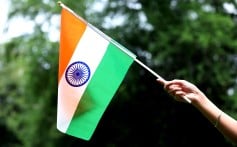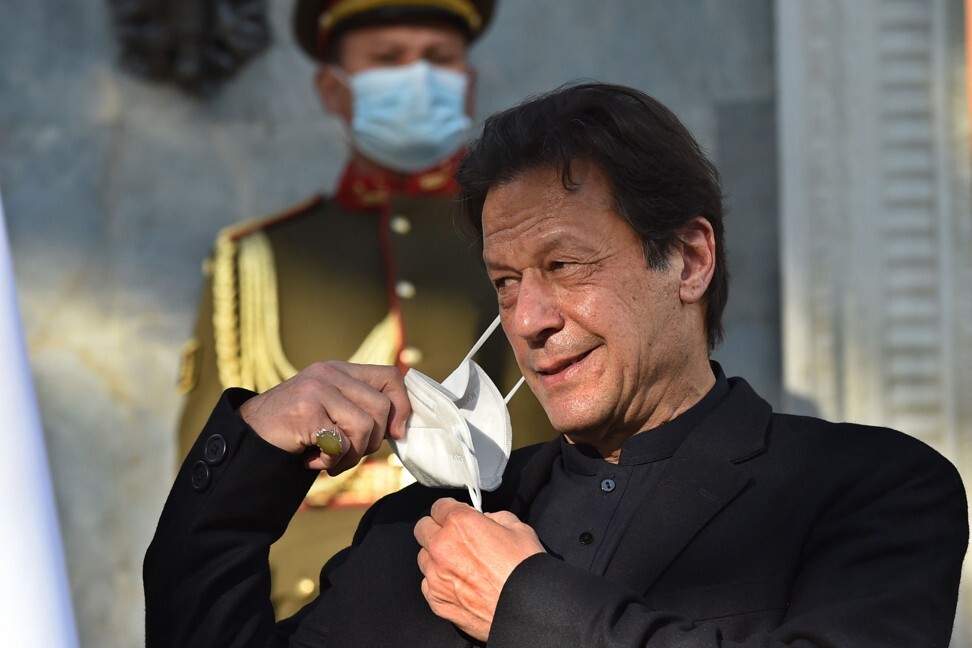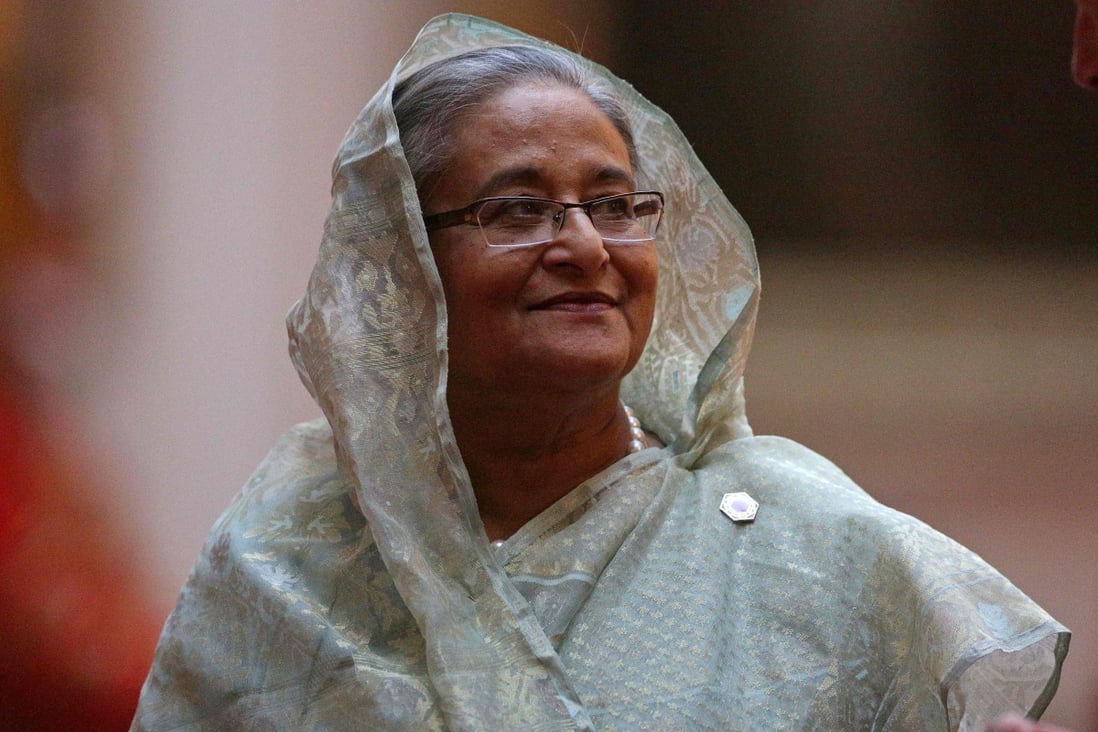- Warming Islamabad-Dhaka ties will have implications for geopolitical dynamics in South Asia
- A former Indian diplomat believes China is behind Pakistan’s initiative to get closer to Bangladesh
move last week to lift visa restrictions for Bangladeshi citizens, and Dhaka’s request that Islamabad issue an apology for mass killings during its 1971 war of independence, have raised concerns in Indian diplomatic circles that its neighbours are attempting to smooth over their strained bilateral ties.
in recent years will have implications for the complex geopolitical dynamics in South Asia, where
sees Bangladesh as an ally but Pakistan as a rival. New Delhi, which remains
at their shared Himalayan border, is also seeking to counter China’s growing influence in the region, which it deems its traditional area of influence.
is behind Pakistan’s initiative to improve ties with Bangladesh.


“I have no doubt it is China that is egging on Pakistan to normalise ties with Bangladesh and to be more active in the country,” Chakravarty said. He added that China wanted Pakistan to activate its “assets” in Bangladesh so they could be used against India, referring to pro-Pakistani elements in Bangladesh, such as the Bangladesh Nationalist Party, which sheltered Indian insurgents when it was in power from 1991 to 1996 and 2001 to 2006.
For Bangladeshis, the long-sought apology from Pakistan for the 1971 genocide is an emotive issue, and one necessary for relations to move forward. Said Shahab Enam Khan, professor of International relations at Jahangirnagar University: “The nation still suffers from the memories and trauma of the genocide.”
Bangladesh estimates that between 1 and 3 million people were killed by Pakistani forces, and more than 400,000 Bengali-speaking women were raped by the army during Bangladesh’s war of independence from Pakistan that year.
Trade between Pakistan and Bangladesh was worth about US$543.90 million in 2019. China, however, is the largest investor and trade partner of both countries. China’s trade with Bangladesh came to more than US$18 billion in 2019, and it has pledged another US$40 billion in investments. Its trade with Pakistan was about US$20 billion in 2019, and under the China-Pakistan Economic Corridor it has promised US$62 billion more to Islamabad.
To Indian observers, the meeting between Alam and Siddiqui suggested a warming of ties between Pakistan and Bangladesh that had been fraying since Bangladeshi Prime Minister Sheikh Hasina set up a war-crimes tribunal in 2010, with Bangladesh hanging six men between 2013 and 2016 who were convicted of genocide and other crimes related to the 1971 war of independence. Another man who was convicted by Bangladesh died in custody. All the men were Bangladeshi citizens with ties to Pakistan.


Pakistan’s parliament condemned the hangings as “against law, justice and human rights”, leading to severe strains in bilateral relations, with both sides expelling each other’s diplomats, imposing visa bans on each other’s nationals and with Hasina ignoring the appointment of a Pakistani high commissioner to Dhaka for 20 months.
, Hasina finally accepted the appointment of a new Pakistani high commissioner and in July had a phone call with her counterpart, Prime Minister Imran Khan.
Former Pakistani diplomat Ashraf Jehangir Qazi – who served as Pakistan’s ambassador to the United States, China and India in a career spanning 39 years – called Hasina’s move a welcome development and urged that “the bitterness of the separation and the exploitation and brutalities that led up to the separation” come to an end.
Qazi also said it was in Pakistan’s interest to work out a solution for bilateral ties that was “practical, principled and acceptable to the people of Bangladesh”.
Bangladesh celebrates its 50th year of independence on March 26 and also the birth centenary of the country’s founding father, Mujibur Rahman, who is Hasina’s father. Analysts say that if Hasina succeeds in getting Pakistan’s apology it will be a prized feather in her cap.

However, Srinath Raghavan, a historian and author of the book 1971, A Global History of The Creation of Bangladesh, said Pakistan’s ability to tender an apology depended on Khan receiving support to do so from the army and conservative elements such as the Islamic group Jamaat-e-Islami – both of which were implicated in atrocities during Bangladesh’s war of independence and still hold wide sway in Pakistani politics.
Raghavan also said China might be behind the recent Pakistan-Bangladesh developments since it had played a role in the 1972-74 period in forcing Bangladesh’s first government under Mujibur Rahman to come to terms with Islamabad – with Beijing persuading Rahman to drop his pursuit of alleged Pakistani war criminals in exchange for a seat at the United Nations, which Beijing had blocked unless Rahman acceded to its demands.
Khan from Jahangirnagar University said although Beijing would be interested in seeing ties between Bangladesh and Pakistan grow, it could not alone be given credit for the recent thaw between the two, given that Pakistan was pursuing its own interests in attempting to revive ties with Dhaka.
Meanwhile, India has tried to solidify its ties with Bangladesh, including by sending its top foreign service bureaucrat, Harsh Shringla, to Dhaka in August to assure Hasina of Delhi’s continued support after relations had been strained over the issue of illegal immigrants from Bangladesh into India and the alleged persecution of Hindus in Bangladesh. The rift came to a head after India passed its Citizenship Amendment Act (CAA) in 2019, starting a national registry of citizens to weed out people with shaky legal standing in India, including the mostly Muslim Bangladeshis.
During his visit to Dhaka, Shringla told Hasina that India valued Bangladesh as a close friend and wanted to work with it closely for the mutual benefit of both countries.
Bilateral trade between India and Bangladesh is worth over US$10 billion annually, and Indian investments in various development projects total over US$3.11 billion. A virtual summit was held between Indian Prime Minister Narendra Modi and Hasina on December 17, during which India assured Bangladesh that its home-grown Covid-19 vaccine would be made available to Bangladesh.
Chakravarty, the former Indian diplomat, said Bangladesh was “aware of the Indian red lines” and that ties between the two would remain stable if Dhaka did not cross them – like what happened when the Bangladesh Nationalist Party sheltered Indian insurgents when it was in power.
Other analysts say Hasina is simply maintaining an independent foreign policy in plumping ties with its neighbours.
“The India relationship has been useful for Bangladesh but not without irritants – like on issues over sharing water from the Teesta river [which flows between India and Bangladesh] – or the CAA legislation,” Raghavan said.
“I would see the attempt to improve ties with Pakistan on its own terms – as a move by Dhaka to improve its own ties in the region, perhaps with some tacit encouragement from China.”



